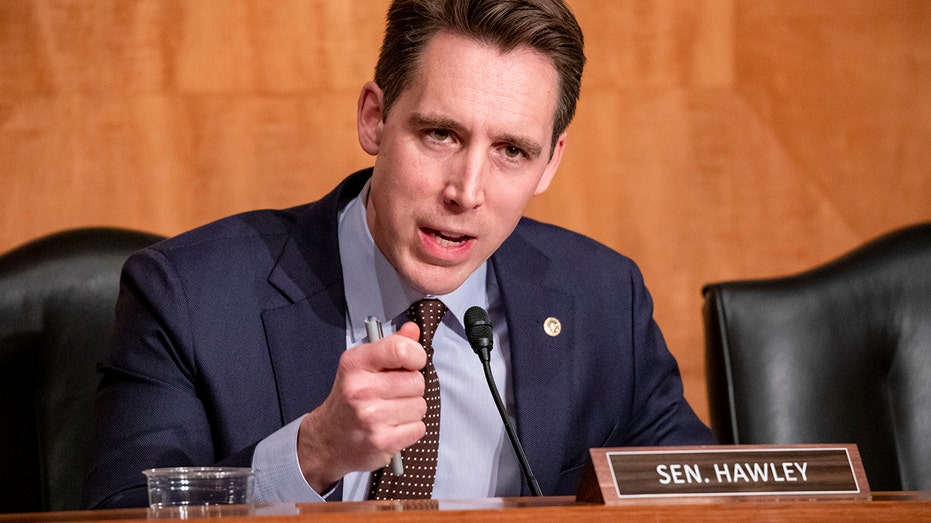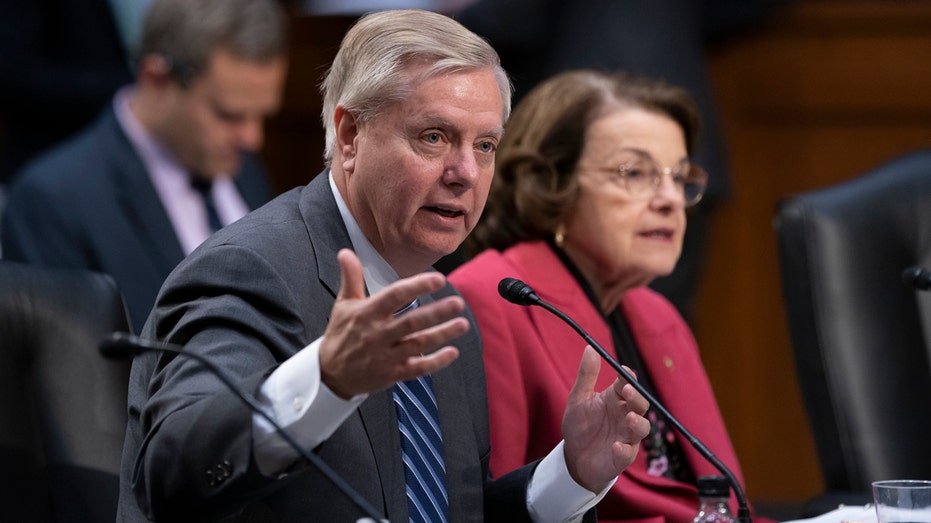Should Section 230 be revised?
FCC commissioner on Internet speech law: Big tech should empower users to opt out
FCC Commissioner Brendan Carr argues there is a growing and bipartisan consensus to reform Section 230 of the Communications Decency Act, which is in the spotlight after Google allegedly targeted conservative websites ZeroHedge and the Federalist.
After Twitter began adding labels to President Trump's tweets in late May, discussions regarding Section 230 of the 1996 Communications Decency Act, and whether the section should be revised, began to reemerge.
Continue Reading Below
| Ticker | Security | Last | Change | Change % |
|---|---|---|---|---|
| TWTR | TWITTER INC. | 36.86 | -0.68 | -1.81% |
Section 230 gives liability protections to internet platforms and social media sites that allow third-party users to publish content on their websites.
The president signed an executive order on May 29 that aims to allow government institutions like the Federal Communications Commission (FCC) to monitor companies that make editorial decisions on user content and take away the law's "liability shield" if platforms engage in user "censorship."
The order also calls for a closer look at the law's use of the phrase "in good faith" regarding platforms' decision to voluntarily "restrict access to or availability of material."
Professor Eric Goldman of the Santa Clara University School of Law, who has written extensively on Section 230, argued in a blog post that Trump's executive order "doesn’t seek to prevent online censorship, it seeks to impose it. "
WHAT IS SECTION 230?
"The executive order did very little, actually, to Section 230. It was much more performative," Goldman told FOX Business, adding that it's likely the FCC will not get involved in the order.
He added that he thinks Section 230 would "benefit greatly by enacting a federal" anti-strategic lawsuit against public participation (SLAPP) law when asked whether Section 230 should be revised in any way.
"SLAPPs are lawsuits that are designed to squelch socially beneficial speech," Goldman explained, "and we see those routinely asserted throughout the country, designed to squelch court critics and stifle essentially beneficial discourse, so anti-SLAPP laws change procedural ways that courts handle those lawsuits."
A person working on a laptop in North Andover, Mass. (AP Photo/Elise Amendola, File) "Section 230 combined with a federal anti-SLAPP law could become much more effective at curbing some of the abusive lawsuits we've seen," he said. Otherwise, Goldman said that he has yet to hear a problem people have identified with Section 230 that would require a revision aimed at improving speech on the internet. "What is the problem that needs to be fixed?" he said. "That's the question I ask when everyone asks me questions like, 'Is there anything that can be improved upon?' Help me understand the problem you're trying to fix. … You can't know until you understand the problem." FACEBOOK, GOOGLE DEFEND SECTION 230 LEGAL LIABILITY PROTECTION UNDER PRESSURE FROM CONGRESS People like the president are "using Section 230 as a way of generally attacking internet companies — they're not really trying to fix any problems," Goldman said. Other advocates for internet free speech have suggested revising what qualifies a provider as a "platform" or "publisher"; leaving liability decisions up to the courts; and allowing users to employ private rights to action, among other ideas, to modernize Section 230. Sen. Josh Hawley, R-Mo., introduced a bill in June to amend the Communications Decency Act that would take away Section 230's liability shield from platforms that do not submit "convincing evidence that their algorithms and content-removal practices are politically neutral," according to a June 19 press release. Sen. Josh Hawley (R-MO) questions Department of Justice Inspector General Michael Horowitz during a Senate Committee On Homeland Security And Governmental Affairs hearing. (Samuel Corum/Getty Images) The Justice Department also issued recommendations on June 17 to modernize Section 230. The Department issued a series of proposals that offer incentives for platforms to further address illicit third-party content online, "while preserving the core of Section 230’s immunity for defamation claims"; call for clarification of the term "in good faith"; clarify that Section 230 "does not apply to civil enforcement actions brought by the federal government"; and maintain that federal antitrust claims are not covered by Section 230 immunity. Rep. Frank Pallone, D-NJ, said the Department's recommendations were just a continuation of the president's executive order in a June 18 tweet. TWITTER NOT ENFORCING TERMS OF SERVICE FAIRLY: SEN. HAWLEY "Section 230 badly needs reform, but this is just a continuation of [Donald Trump's] political retribution designed to frighten social media platforms into submission. Sad, but unsurprising, that [the DOJ] is doing his dirty work," Pallone wrote. On a more bipartisan but widely criticized scale, Democrats Sens. Richard Blumenthal of Connecticut and Dianne Feinstein of California, as well as Republican Sens. Lindsey Graham of South Carolina and Hawley, introduced the Eliminating Abusive and Rampant Neglect of Interactive Technologies (EARN IT) Act in March. Senate Judiciary Committee Chairman Lindsey Graham, R-S.C., left, is joined by Sen. Dianne Feinstein, D-Calif., the ranking member. (AP Photo/J. Scott Applewhite) EARN IT aims to protect children from online predators but would also give law enforcement "legal access" to any digital message sent online, or else platforms will lose Section 230 protections. Tech and cybersecurity experts say the bill is flawed. GET FOX BUSINESS ON THE GO BY CLICKING HERE Those who oppose the Act argue that giving law enforcement and the DOJ the ability to unlock any encrypted message would pose a threat to national security because providing law enforcement with backdoor access to encrypted messages would open access to bad actors as well. As policy analyst Joe Mullen of the nonprofit digital rights group Electric Frontier Foundation (EFF) wrote of the legislation, "You can’t have an Internet where messages are screened en masse, and also have end-to-end encryption any more than you can create backdoors that can only be used by the good guys. The two are mutually exclusive." Nearly 600,000 people have signed a petition against the EARN IT Act. CLICK HERE TO READ MORE ON FOX BUSINESS Source: Read Full Article



